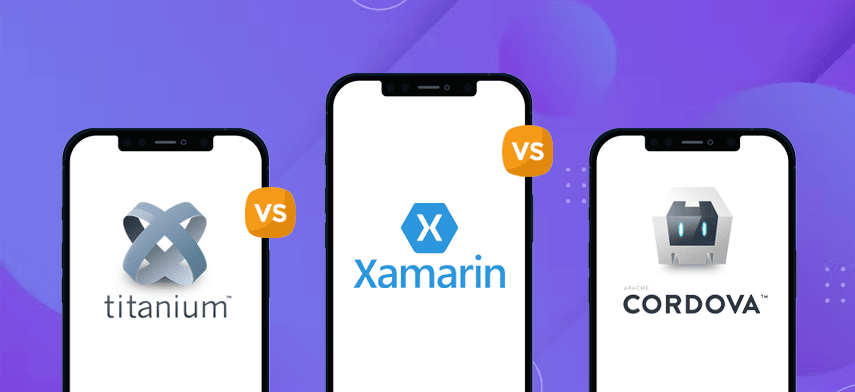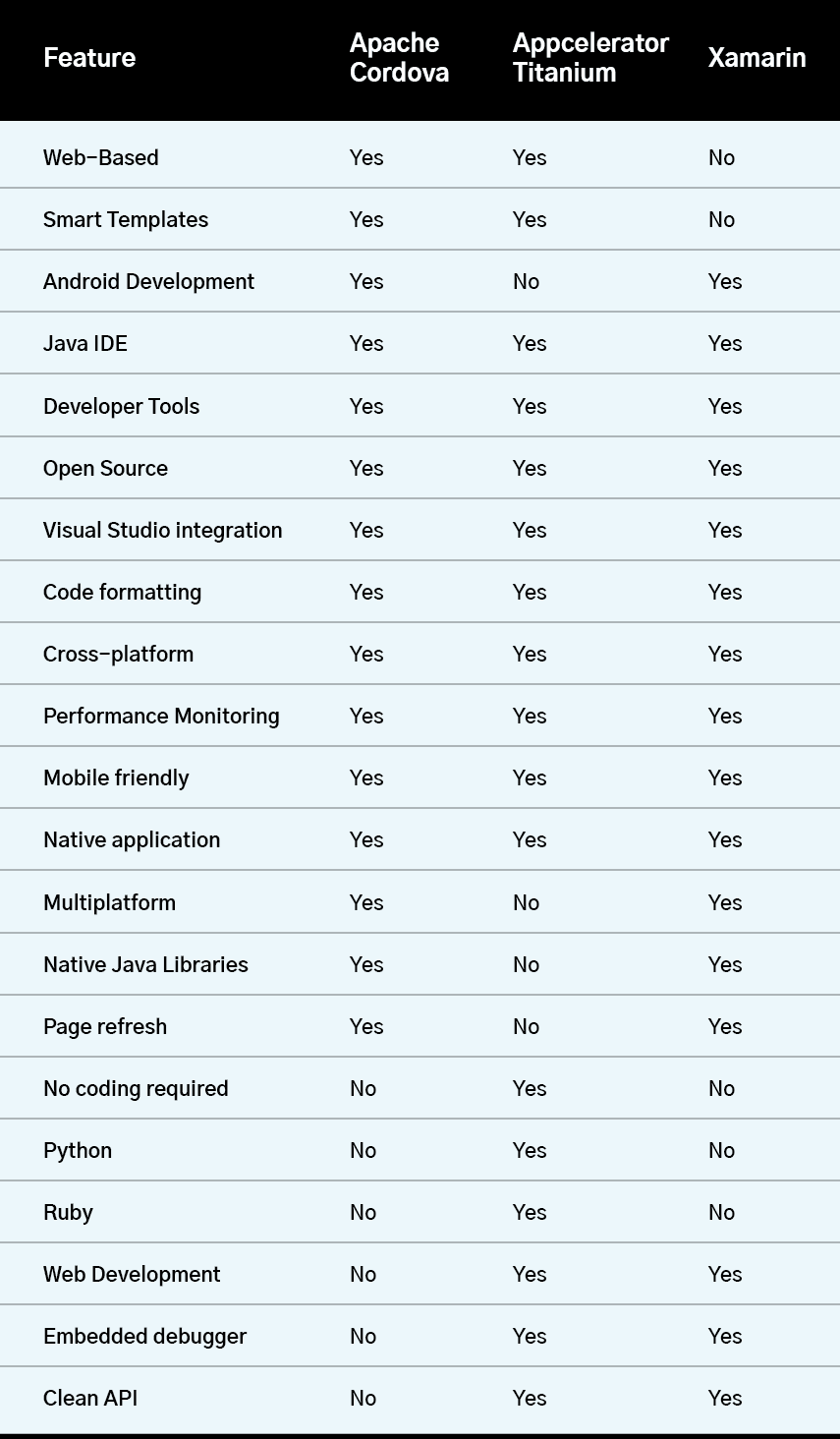In today’s highly competitive and digital age, cross platform app development has become the most preferred choice for businesses of all sizes to expand their reach to a broader audience and lower the time to market launch. Furthermore, leading-edge technologies have made it more powerful than ever before.

With the cross platform app development approach, businesses and developers can build feature-rich mobile solutions compatible with multiple OSs and platforms like Android, iOS, Windows, etc. And this is possible because of advanced technologies and tools.
Top-tier development tools can help develop highly scalable and secure mobile-enabled digital solutions that help apps stand out in the competitive market. In today’s post, I will discuss the most used cross platform app development tools that you can use for your project in 2022.
Popular Cross-Platform Mobile App Development Tools
According to a study by Statista, 42% of the world’s developers use Flutter for cross-platform app development, which makes it the most popular solution for the same. In 2021, React Native was the second most popular choice among developers, while Cordova ranked third, with 16% of total developers using it.
The reason behind Flutter being the most popular cross-platform language is a fairly obvious one. It was developed and released by Google. Flutter also ranked among the top three most loved languages in the Developer Survey Results, further showing its popularity among developers.
So, why is it important for companies to choose the right tools for mobile app development on multiple fronts? Let us understand the same.
Importance of Choosing the Right Cross Platform App Development Tools
Most companies are inclined towards cost-effective ways to develop applications that can be accessed on multiple platforms. And the cross platform app development approach is an ideal one for them because it has various advantages, as mentioned below:
1 Easier Maintenance and Deployment
One of the first problems that are solved by cross-platform development is the need for a separate codebase for Android and iOS. The universal app can function on both major platforms seamlessly, which makes deployment very easy. If any bugs or glitches are found in the app, they only need to be fixed once. The resulting updates are synced across all devices as well.
2 Cloud Integrations
Cross-platform mobile applications leverage various plugins integrated with the cloud settings. The single source code is coordinated with multiple plugins and extensions that provide a significant boost to the functionality of the app. This is possible with the right cross platform app development tool.
3 Reusable Code
By using the same codebase for all platforms, coders do not need to create unique code for every device. Instead, the same code can be reused for different devices with no drawbacks. In the long run, you end up saving time and money through the reusable code that can be used multiple times.
4 Faster Development and Delivery
When the right tools are used for cross-platform mobile app creation, they can help speed up the development process. This is mainly due to the ‘Write Once, Run Anywhere’ (WORA) principle, the core of cross-platform development. The customization or minor changes to the app can also be delivered much faster by using the right tools.
Businesses have myriad options available to choose from as there are several tools available in the market to develop cross-platform applications. Some of the top cross platform app development tools include Flutter, Xamarin, Titanium, Ionic, Titanium, Cordova, React Native, etc.
You can refer to our insightful post on Flutter vs. React Native vs. Xamarin if you are planning to choose anyone for your next project. If you are planning to choose other tools, then we will discuss the same in our today’s post. We are going to compare the other, most used tools by developers – Titanium, Xamarin, and Cordova that can save your time during your entire development lifecycle. Let us understand the same.

A Detailed Comparison – Titanium Vs. Xamarin Vs. Cordova
Titanium, Xamarin, and Cordova are some of the most popular cross platform app development tools. Let us learn a bit about the individual frameworks before we look at an in-depth comparison between their functionalities.
Titanium
Titanium development allows you to build cross-platform apps using a single JavaScript codebase. Developing apps with the Titanium framework feels like you are writing a native application. The difference is that you use the JavaScript framework instead of Objective C or Java. Over 2,000 apps have been developed using Titanium, and they have been downloaded over 146 million times, according to Appbrain.
Here are some of the apps built using Titanium:
- Kitchen Sink
- Kitchen Sink 2.0
- Geocoder
- PlexusRx
Here are the pros and cons of cross-platform development using Titanium:
Pros
- Titanium allows you to boost development speed to a great extent. You need to write a few lines of code for functions that take days to create. Due to the capacity for rapid development, you can use the prototype to see how the user will interact with the UI.
- Using the various tools that Titanium’s suite comes along with, you can manage the entire development process without searching for the right tools on the market.
- It is free and open-source, which means that it is readily available on the market for everyone to use
Cons
- One of the main cons of Titanium is that errors are not detected until runtime, and you might come across memory starvation issues as well.
- SDKs need to be directed locally, and it is optional that you maintain a controlled environment when targeting multiple apps.
- Animations can be laggy on Android devices and not responsive when you return to the app from the background.
Xamarin
Xamarin was launched in 2011 but acquired by Microsoft in 2016, which gives it even more credibility as a development language. This open-source framework allows people to choose an alternative to the disjointed and native technology stacks. 14% of developers worldwide are using Xamarin for cross platform app development. The market share of Xamarin apps is 1.74%.
Here are some of the notable apps that are built using Xamarin:
- The World Bank
- HCL
- UPS
- Alaska Airlines
Now, let us look at the pros and cons of Xamarin app development:
Pros
- Since Xamarin uses C# for coding, it can work seamlessly on various platforms.
- Everything can be done in Visual Studio, and due to the single tech stack, there is no need to switch languages in the development process.
- It is nearly impossible to differentiate a Xamarin app from a native one. This is because Xamarin uses Native APIs and toolkits to work on the native app’s performance and design.
Cons
- Xamarin apps are often larger since 3-5MB is added in the release and 20MB in debug builds due to the massive number of libraries.
- Updates for Android and iOS take about 2-3 days to integrate into the system thoroughly.
- It is not the best choice for developing games or other apps rich in animations. It cannot handle rich graphical elements very well.
Cordova
Apache Cordova helps you build apps in standard development languages such as HTML, CSS, and JavaScript. This way, you do not need to code in each native mobile development language. There are several workflows and external plugins that you can make use of when developing cross-platform apps using Cordova. 1.64% of top apps use Apache Cordova, and over 56,000 apps make use of this framework right now, according to Appbrain.
Here are some of the top apps that make use of Cordova:
- Amazon
- Canva
- Line
- MEU TIM
- Conecte SUS – Ministry of Health, Brazil
Now, let us take a look at the pros and cons of Cordova development:
Pros
- Cordova makes it easy to maintain apps and release them to the users. This is achieved by bypassing the version, which makes it easier to update.
- Cost-effective cross-platform development solution since you don’t need to spend on the creation of multiple codebases.
- You do not need to worry about learning individual development languages and can develop using the standard languages.
Cons
- Hybrid apps tend to be slower due to the cross-compilation involved in the creation process.
- Plugins are not present by default and need to be integrated explicitly.
- Supporting different apps can be a nightmare due to varied hardware, screen size, and networks.
Comparison of Top Cross Platform App Development Tools

Key Differences: Titanium Vs. Xamarin Vs. Cordova
1 Popularity
Between 2019 and 2021, Statista found that Cordova is the most popular cross platform app development framework ahead of Xamarin, which is used by 11% of developers. Xamarin is owned by Microsoft and is naturally considered to be a more credible option as a result. But the findings of the study prove otherwise.
2 Community Support
Titanium’s user community was done away with a few years ago, which means that there is practically no community support available. Xamarin does much better in this factor. Over the years, the two frameworks have managed to establish a decent following and community of developers online. Cordova, on the other hand, does not have proper guidelines or documents for the same.
3 Performance
Xamarin takes the prize when it comes to overall performance. Yes, it adds some weight to the size of the app, but it does a much better job than its competitors. Titanium is known to be glitchy and can show unexpected errors. On the other hand, Cordova does not have cache memory management, resulting in memory leaks. Both Xamarin and Cordova find it challenging to deal with graphic-intensive applications.
4 Programming Language
Titanium development can be done using JQuery, HTML, CSS, JavaScript, and Ajax. While Xamarin development employs C#, you may need to hire mobile app developers due to the presence of the .NET layer. For this, a mobile developer needs to learn .NET, or a .NET developer needs to be familiar with the principles of mobile app development.
So, Which Tool Should a Business Choose to Build Apps Faster in Today’s Highly Competitive Digital Environment?
Every company and every project is different and has unique requirements. So, it is impossible to suggest a solution that is the best for every situation. The decision for the best tool to build a cross-platform app needs to be made by the company itself.
There are some key points on which the decision needs to be made, and some of them include company size, costs, staff expertise, delivery speed, and security.
If you’re looking for a free, cost-efficient solution, then you can choose between Titanium and Cordova. Xamarin has a free version, but the Studio version is available only with the Visual Studio Professional or Enterprise subscription.
If security is concerned, then you can go for Cordova due to its cache memory management flaw.
As a developer, you will be needing user information, guidelines, and community support surrounding application development. For that purpose, choosing Xamarin is the best option. Microsoft has released a wide array of documents to help developers, and there is a large following for the same on GitHub.
For code stability, Titanium is not the best option since it is quite prone to hanging and glitches. But, if you are only looking to build a quick prototype, then Titanium can be a great option for you due to its speed.
For building complex applications that require the use of third-party plugins, Xamarin is your best bet since there are several third-party plugins that can be integrated into the framework as per your needs.
To Summarize,
Cross platform app development is the future, and every company should try to take advantage of its benefits as soon as possible. Xamarin, Titanium, and Cordova are three of the top tools to ensure that the development process is as seamless as it can be.
While coding in Titanium is speedy, and Xamarin provides better stability. On the other hand, Cordova’s memory management issues are not present in Titanium. So, while there is no single solution for every development problem out there, there is a solution for your unique needs within these three frameworks. You can get in touch with our expert team for any help you need for your next software development project, as consulting a proficient expert can help you make the most suitable decision.

Author's Bio:

Pritam Barhate, with an experience of 14+ years in technology, heads Technology Innovation at Mobisoft Infotech. He has a rich experience in design and development. He has been a consultant for a variety of industries and startups. At Mobisoft Infotech, he primarily focuses on technology resources and develops the most advanced solutions.


